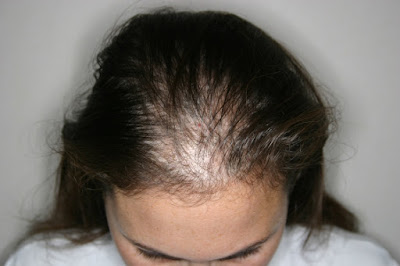SCABIES scabies Scabies is a contagious skin infestation caused by the human itch mite known as the Sarcoptes scabiei characterized by intensive itching and rashes. Female microscopic eight legged mites burrow into upper layer of skin where they live and lay eggs (three or less) per day. The infestation is transmitted from one person to another host through intimate contact (crowded area, poor hygiene, and sexual contact), sharing contaminated clothing, towel and bedding. Sites for outbreak of scabies includes school, hospital, nursing homes, prison and other extended care institution. Effective recommended treatment of scabies involves entire group of people who are at risk of develop scabies in the infected area. SYMPTOMS AND SIGNS OF SCABIES. It takes up to six weeks for signs and symptoms of scabies to manifest for new infected person but for those who had infection before symptoms will appear quickly. The diagnostic symptoms of scabies infestation is d...
POLYCYSTIC OVARIAN SYNDROME (PCOS).
 |
| norma ovary on right, polycystic ovary on left side |
Polycystic ovarian syndrome is also known as Stein-Leventhal syndrome, is the hormonal disorder of the women of childbearing / reproductive age due to elevations of male reproductive hormone (androgen). This hormonal imbalance may cause some serious reproductive problems such as prolonged, missed and irregular menstrual, that can result to woman fertility. Polycystic ovarian syndrome causes ovary to develop numerous cysts (fluid-filled sacs) and fail to release on regular menstruation. Early treatment is important to prevent serious medical problems like high blood sugar (diabetes), and heart disease.
CAUSES OF POLYCYSTIC OVARIAN SYNDROME.
The causes of polycystic ovarian syndrome is still unknown but it links with genetics, insulin resistance and inflammations that leads to excess androgen production. There are some factors that contribute on increasing high risk of women suffer from polycystic ovarian syndrome such as:
- Overweight (obesity)
- Physical inactive in women
- Excess male reproductive hormone (testosterone) in women
- High insulin level
SIGNS AND SYMPTOMS OF POLYCYSTIC OVARIAN SYNDROME.
- Irregular menstrual periods
- Obesity and weight gain
- High blood pressure
Unexplained elevated blood pressure is also common in women with polycystic ovarian syndrome. Obesity and overweight can be among of factors that cause hypertension.
- Acne or oily skin
Acne can be common to the teen below 20 years old but if it continue may be sign of polycystic ovarian syndrome. acne on the face, chest, upper neck, upper back and chin.
- Excessive facial or body hair (hirsutism)
Increase in facial and body hair (hirsutism) in women is the result for excess male reproductive hormone (testosterone) in their body. Polycystic ovarian syndrome is the main reason for hirsutism, more that 70% of women with PCOS are affected. Too much hair can be seen on the face, chin, and upper lips.
- Hair loss and thinning hair (male-pattern baldness)
 |
- Stress and depression
Changes like hair loss on scalp, darkening of skin and increasing of hair (hirsutism) that occurs on the women's body may trigger emotional stress and cause any mental and physical illness. Hormonal imbalance in the women body with polycystic ovarian syndrome can cause depression.
- Skin discolorations
Darkening of skin and skin tags, particularly along neck, in the armpit, in the groin area and underneath breast may be sign of polycystic ovarian syndrome.
Other signs and symptoms of polycystic ovarian syndrome are:
- high cholesterol levels,
- Pelvic pain
- Patches of thickened skin
- Infertility
- elevated insulin levels and insulin resistance
- multiple small cysts in the ovaries
- Pregnancy-related problems, including difficulty getting pregnant, having a miscarriage.
If left untreated polycystic ovarian syndrome can lead to serious health problems like high blood sugar (diabete), hypertension (high blood pressure), endrometrial cancer and stroke.


Comments
Post a Comment